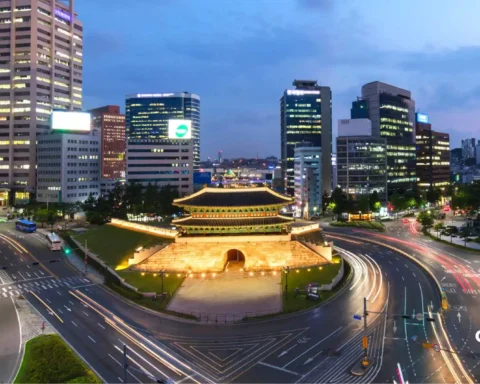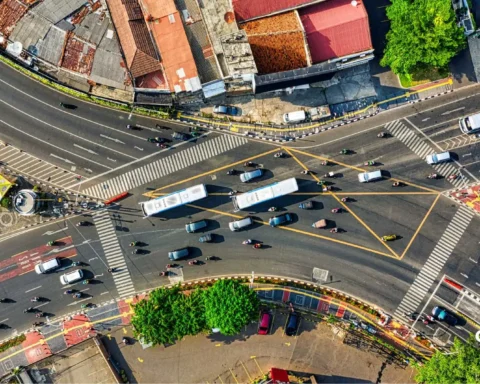Every year, the 17th of October marks the International Day for the Eradication of Poverty. The history of this poignant day can be traced back to Paris in 1987.
Father Joseph Wresinski, a Catholic priest, and 100,000 other Parisians gathered at the Trocadero Plaza to honour victims of poverty, violence, and hunger. On the fourth anniversary of his death, UNESCO designated the 17th of October to commemorate Father Joseph’s work.
Table of Contents
What is the International Day for the Eradication of Poverty?
The International Day for the Eradication of Poverty is a day designated by UNGA (United Nations General Assembly) through resolution 47/196 to actively challenge poverty. According to the United Nations, it aims to acknowledge the challenges posed by poverty and promote dialogue and understanding of the subject matter.
The United Nations also invites all member states to participate. Countries are encouraged to engage concretely in the fight against poverty in accordance with their national and regional contexts.
It also aims to admit the multiple facets of poverty, understanding that poverty is not limited to just the lack of income but also other basic necessities. This multifaceted understanding of poverty forms the basis for the theme of the International Day for the Eradication of Poverty 2024.

What is the Theme for the International Day for the Eradication of Poverty 2024?
In 2024, as every year, UNESCO (United Nations Educational Scientific and Cultural Organization) identifies several themes related to poverty. These themes are then made the focal point of the International Day for the Eradication of Poverty.
The United Nations has set the theme of “Ending Social and Institutional Maltreatment Acting Together for Just, Peaceful and Inclusive Societies” for this year.
As stated earlier, poverty is multifaceted and has multiple dimensions. The mistreatment, social and institutional, of poverty-stricken people is what the United Nations terms as a hidden dimension.
People living in poverty experience discrimination, which becomes associated with several aspects of their character. They’re judged and stigmatized for this. This form of social maltreatment permeates into institutions. Negative attitudes against people living in poverty can lead to disrespect or complete disregard from institutions.
As stated by the UN, “Social and institutional maltreatment interact and amplify each other, fueling this double-edged violence and deepening the injustice, and this is more pronounced for people who face other forms of prejudice as well, including gender, sexual orientation, race, or ethnicity.”
The Role of International Organizations and Governments
The role of international organizations and governments in fighting poverty is crucial, especially on the International Day for the Eradication of Poverty. As stated previously, the aim of having days of commemoration is to draw significance and attention to an issue.
Through several initiatives, such as the Sustainable Development Goals, better known as the SDGs, institutions such as the United Nations are able to narrow down which aspects of society to combat.
Additionally, cooperation between governments and international institutions allows the combating of issues with respect to their national context. Poverty might be a global problem, but it does not have a one-size-fits-all solution. For example, the African Development Bank (AfDB), in cooperation with several governments, launched the ADF (African Development Fund). The ADF aims to provide and improve access to necessities such as health care and education.
Conclusion
The International Day for the Eradication of Poverty is not just a day for self-reflection about ourselves as individuals or as a society. While that is an essential aspect of building empathy, it is imperative to act accordingly. Learn and understand the factors causing and affecting poverty. It is also important to understand how we, as a people privileged to be above it, can get involved.
Our participation is significant as this year’s commemoration theme is maltreatment. As active members of society, it is our moral responsibility to ensure we positively affect the cause.

FAQs
What are the major causes of poverty?
The UN defines poverty as the severe deprivation of human needs. The causes vary widely and are subject to regional and social differences. These can include political conflict, inaccessible social services, weather and natural disasters, and social injustices targeting societies and demographics. Highlighting these causes forms a key cornerstone of poverty eradication.
What are the types of poverty?
Poverty is subcategorized into two groups: absolute poverty and relative poverty. Absolute poverty is defined as the inability to meet basic needs. A substitute term for this would be extreme poverty. Relative poverty is defined as when a household receives about 50% less income than the median income in their society.
How can we eradicate poverty?
The process of eradicating poverty is as complex as the subject itself. Improving or providing universal access to basic social services such as health care and education is vital, as is developing social protection programs and systems for vulnerable communities and demographics.









